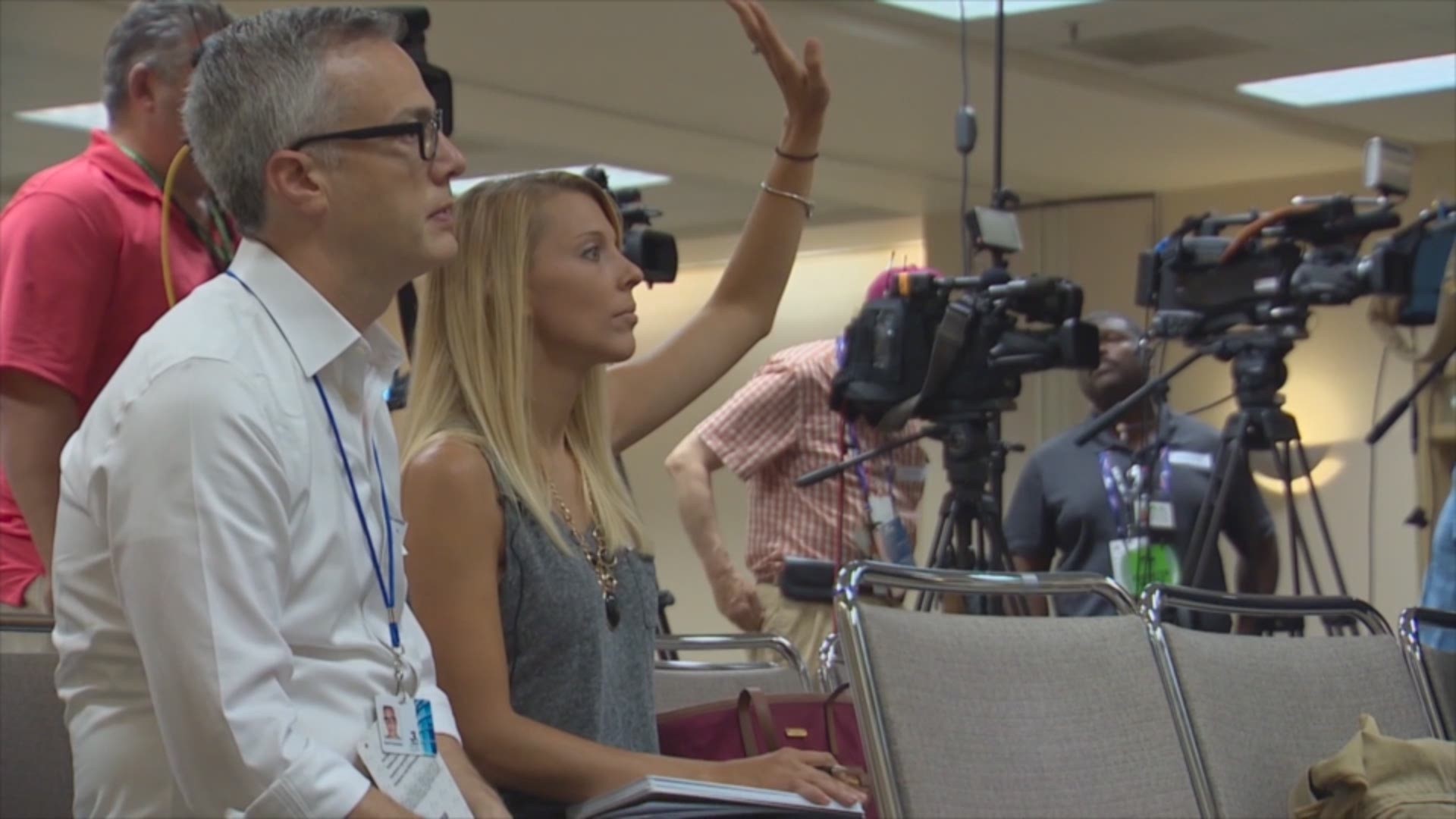In the last five years, earthquakes in Texas are up 1,000 percent. The spike in quakes mirrors the rise of hydraulic fracturing in Texas — the new way to drill for oil and gas.
The question is, does fracking cause earthquakes?
Mesha Coleman is a marketing executive and mother of two from McKinney, Texas. Reporter David Schechter took her on the road to ask her own questions and come to her own conclusions.

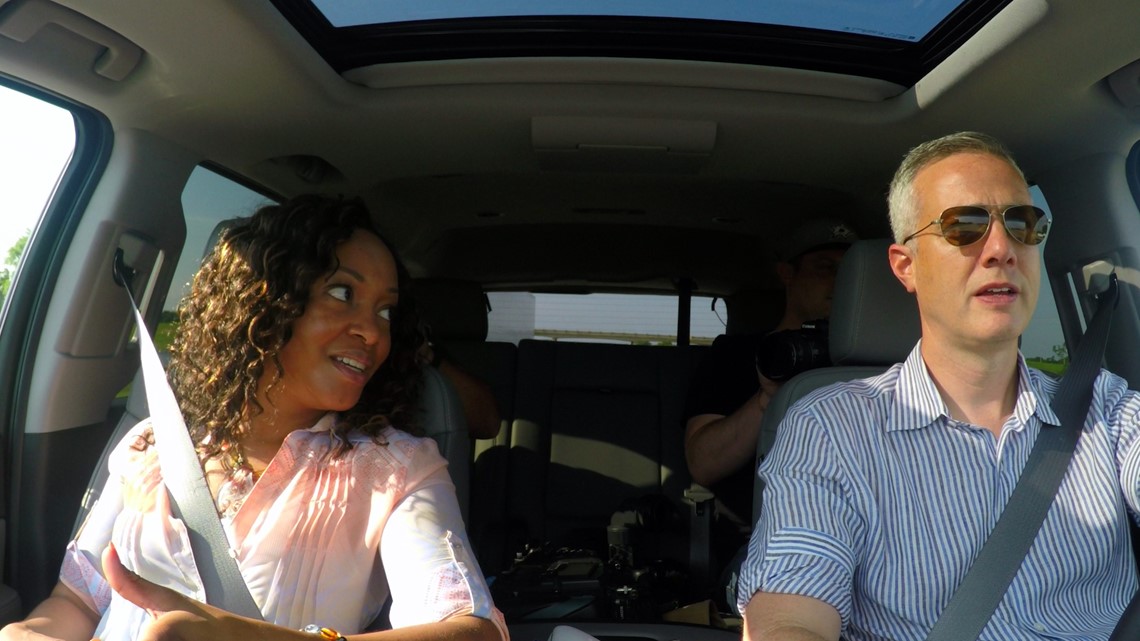
It's a good idea, economically, to keep drilling stateside but what is it doing to our environment, Coleman wondered.
You worry about that, Schechter asked Coleman.
"Yes, that's concerning,” she said.
To understand Texas earthquakes better, we're not starting in Texas. We’re taking Mesha on a four-hour road trip to Oklahoma.
Why?
Oklahoma has more fracking and more earthquakes than Texas. Just this month the state recorded its largest quake ever. It was only slightly more intense than a major quake that hit in the town of Prague, back in 2011.


Mary and Joe Reneau were home for that one when the chimney collapsed onto their roof.
"It was really strong,” Mary said.
"The dust was flying," Joe said. "You can see the walls cracking."
"What was the total damage in dollars?” Schechter asked Joe Reneau. "Our policy was $209,000 and we maxed it out,” he said.
How does fracking work?
Drillers push fluid deep underground, under very high pressure. That cracks the rock. The cracks unlock oil and gas trapped inside. The oil and gas comes up to the surface.
"So what do you guys think caused the earthquake? Do you think it’s directly related to the fracking?” Mesha asked.
"Yeah, I think it caused it,” Mary said.
Mary and Joe showed firsthand how damaging earthquakes can be. They think fracking caused their quake. Is that true? Let's find out from an expert.
So, Coleman and Schechter went to see Jefferson Chang, Oklahoma's state seismologist, outside Norman. Chang showed them one of the state’s highly sensitive earthquake monitoring stations. It instantly sends feedback from the field back to the office.

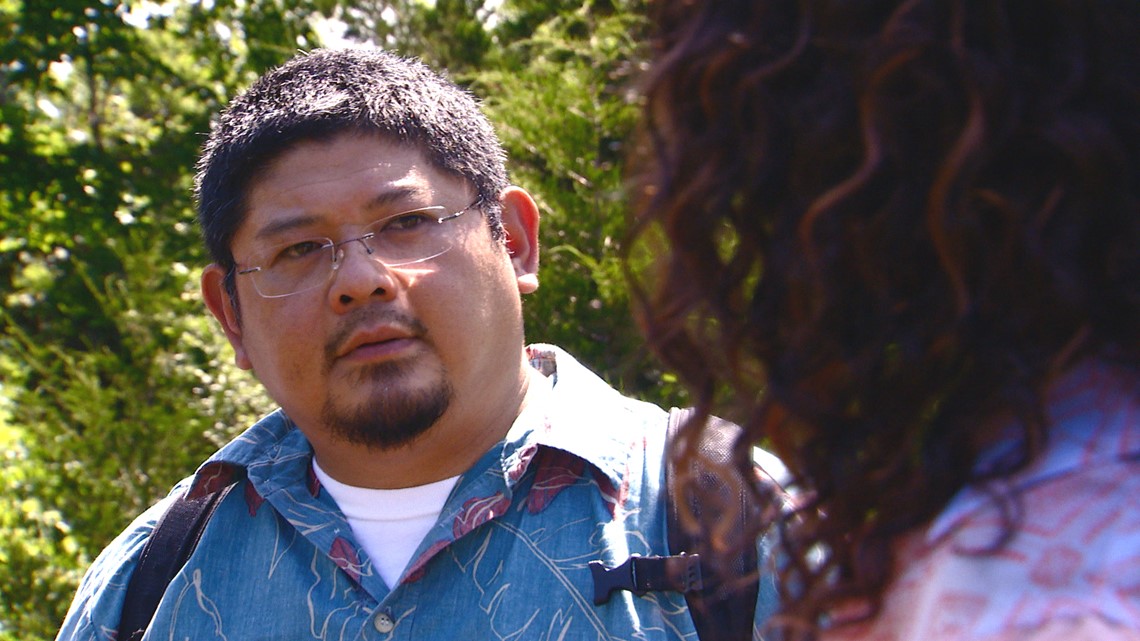
Our question was, "Does fracking cause earthquakes?" Schechter asked Chang.
"The absolute answer is 'yes,' fracking does cause earthquakes. But earthquakes you will never feel,” Chang said.
Earthquakes you will never feel, he said, because fracking only causes tiny earthquakes. But Oklahomans, like Mary and Joe, are certainly feeling some big ones. So, if it's not the fracking, what is it?
"The new hypothesis is it's not fracking but waste water disposal”, Chang said.
While fracking produces oil and gas it also brings up massive amount of underground water that's too dirty to drink.
Drillers inject that water back underground into waste water disposal wells. The U.S. government says those wells can cause earthquakes. Oklahoma is trying to cut down earthquakes by cutting down on injection wells.
'Why do you think Oklahoma is so proactive in implementing these constraints?” Mesha asked Chang.
"We need to come up with this balance of people can still make a living and people that live here can still feel safe in their homes," Chang said.
Oklahoma and the U.S. government say injection wells do cause earthquakes. Time for Coleman and
Schechter to go home and see what Texas has to say.

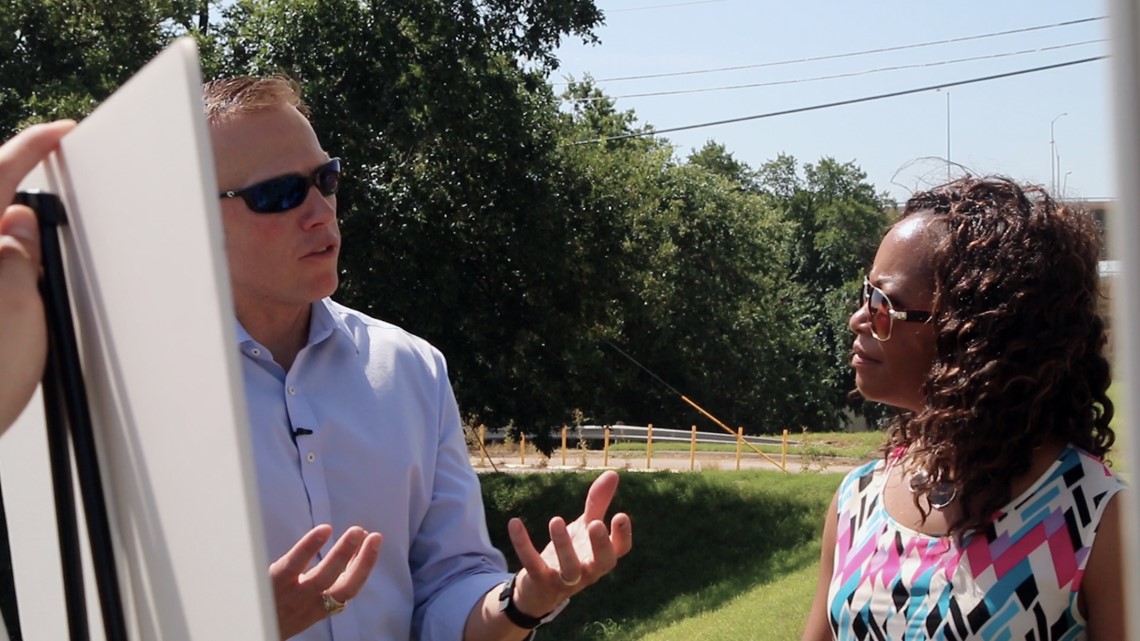
The Texas Railroad Commission regulates oil and gas drilling in the state. Ryan Sitton is a commissioner and previously earned his living in the industry.
"So do you believe that there is a correlation between wastewater disposal and the increase in earthquakes?” Mesha asked the commissioner.

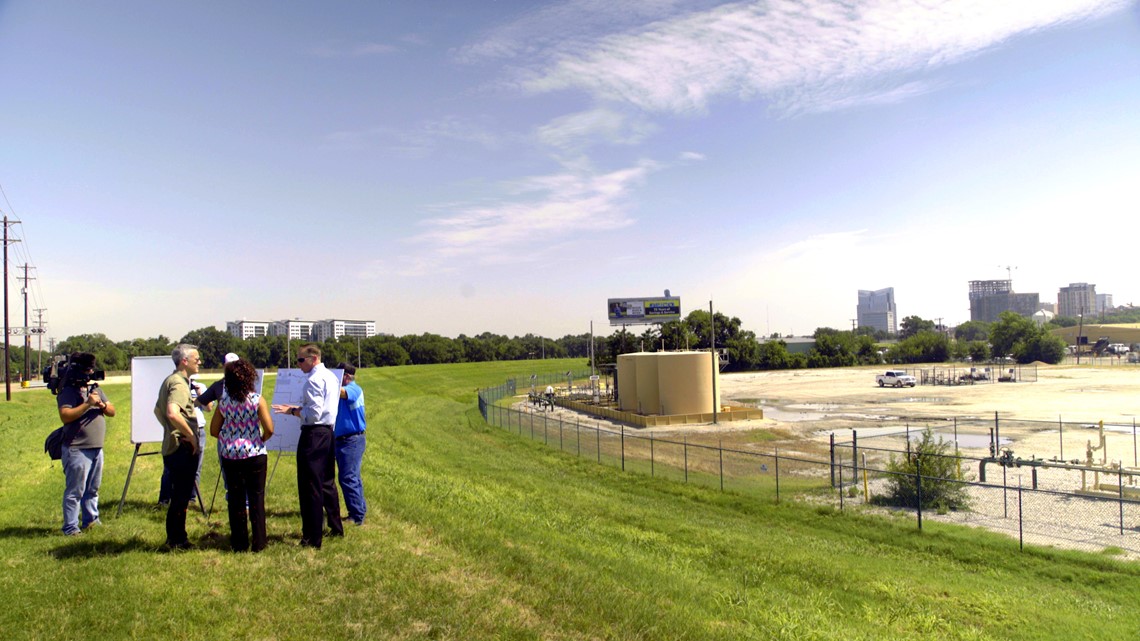
"So there’s no question that there has been some correlation. In other words, there are areas where there have been some disposal wells, and in which there have been earthquakes,"
Sitton said.
"The challenge is there are also areas where there are not correlations. So the scientist in me says, 'Well, that by itself cannot be enough evidence,'” he added.
In response to the quakes, Texas now collects more information from drillers about seismic events. The legislature has also approved $4.5 million dollars to further study the problem.
"In Oklahoma, they have a reputation for being very proactive. What you’re saying about Texas is we are studying this and then we’ll come up with the solution. Is there a big difference between the two states?” Schechter asked Sitton.
"We’re taking different approaches because we have not seen the major uptick like they have, the correlations are not as strong, and our disposal processes are different. So we have to take a more
analytical approach. So, yeah, we don’t know the answer in Texas,” Sitton said.
Texas doesn't agree with Oklahoma on the cause of earthquakes.

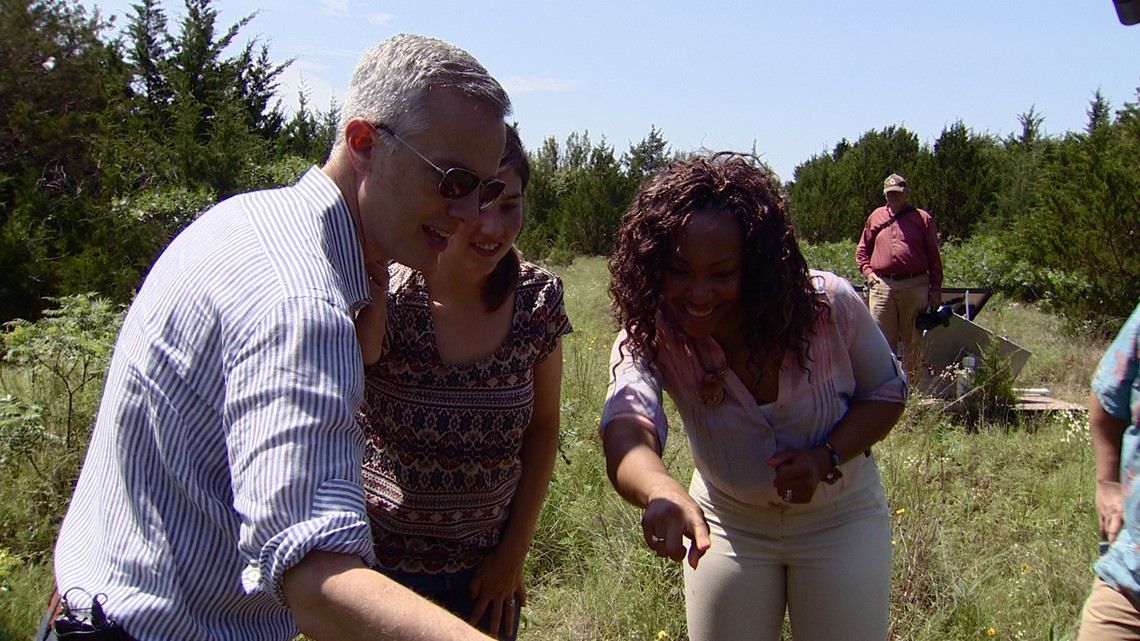
But we can all agree, no matter how small, earthquakes are unsettling.
Time to wrap up this trip and see what Mesha thinks.
"How do you process that? You go to Oklahoma, they say injection wells are causing earthquakes. You go to Texas, he says, 'We don't know.’” Schechter asked Mesha.
"Texas might be waiting to see the science but I think sometimes science is catching up with what’s actually happening in the world," she said.
"So, instead of waiting on the science to catch up I think we should be doing something proactively,” Mesha added.
"Can you walk out of here and say, it's verified, and fracking causes earthquakes?” Schechter asked Mesha.
"I'll put my stamp on it, David. Verified,” Mesha said.

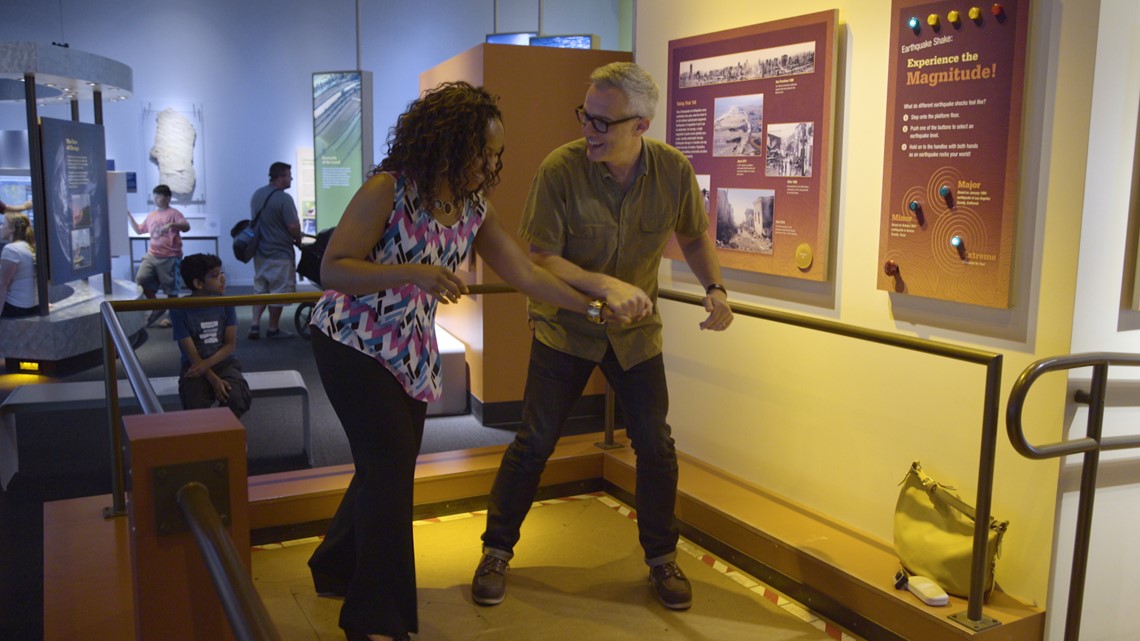
So, Mesha thinks waste water injection wells, part of the fracking process, are what’ s causing the earthquakes. Don’t take our word for it. Take hers

